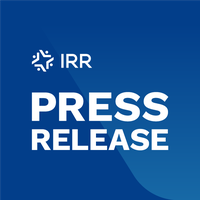
South Africa’s long-term failure to attract sufficient investment is probably the most pressing strategic issue confronting the country – but it has the assets on which a turnaround can be built.
So says the Institute of Race Relations (IRR) in a new report, “Open(ing) for business”: South Africa’s investment malaise and how to escape it, which is to be launched at a webinar next Tuesday, in which IRR researcher and Daily Friend Show host Nicholas Lorimer will discuss the study with its author, IRR Project and Publications Manager Terence Corrigan.
Inadequate levels of investment are a significant factor behind the country’s poor growth performance, and the consequent mounting socio-economic consequences.
The IRR’s new paper shows that the rate of investment in South Africa stands far below its peers globally, with World Bank data indicating that middle income countries as a group have in recent years achieved an investment rate double that of South Africa. Turning this around is a matter of existential importance to South Africa.
The paper traces how the country has come to this point and what can be done about it. The study draws on the IRR’s extensive work over decades in understanding the South African economy, and on conversations with South African and foreign businesspeople and analysts.
“South Africa has become an unfavourable destination for investors – both foreign and local – in significant part because of the choices that have been made over decades,” comments Corrigan.
The study argues that South Africa’s economy is a complex one, and depends on a series of enablers of increasing sophistication, each requiring a set of competencies in governance. At the most basic, extractive industries and trade require “good enough governance”, such as the maintenance of infrastructure and security. More advanced activities, such as manufacturing and capital intensive long-term investments demand “good governance”, an ability to furnish stable, nuanced but clearly articulated policy, human capital development and so on.
Beyond these, a third level, “developmental governance” involves direct state intervention and support for key sectors and industries – the phenomenon of “picking winners”.
The study shows that the glaring deficiencies at all levels have skewed the environment into one that makes investment inherently risky, raises its costs, and lowers the prospects of rewards.
Corrigan notes: “Perhaps the most striking part of this is that official attention is often directed at dealing with the most complex issues – aspiring to the sort of ‘developmental state’ that drives economies in East Asia – while the foundational conditions have been neglected and allowed to decay. So, we have a situation where the government is attempting to implement industrial policy plans and to stimulate particular industries while the logistics network is in crisis. The upside-down priorities ensure failure.”
In addition, numerous policy choices have had the effect of discouraging investment. Broad-Based Black Economic Empowerment, for example, adds an additional layer of cost and complexity to doing business. This places South Africa at a severe disadvantage to many peer economies.
The unintended effects of poorly conceived policy combined with weak governance have produced a situation where investment as a proportion of GDP comes in at around half of the 30% target set by the National Development Plan.
Fortunately, much of this can be changed.
“South Africa retains several advantages,” says Corrigan. “These include a solid infrastructural base – albeit in need of rehabilitation – a vigorous private sector, some robust institutions, and a favourable demographic profile. It has extensive commercial links with the Western world and is growing them with Asia. It is situated on a continent with great potential. All of these are assets that could stand the country in good stead as it positions itself as an investment destination. Whether it can do this does, of course, depend on the choices made going forward.”
Details of webinar
Date: Tuesday 26 November
Time: 10am
Participants: Author Terence Corrigan and IRR researcher and Daily Friend Show host Nicholas Lorimer
Platform: https://streamyard.com/watch/fidvndY9VHvc
Media contact: Terence Corrigan, IRR Projects and Publications Manager Tel: 011 482 7221 Email: terence@irr.org.za
Media enquiries: Michael Morris Tel: 066 302 1968 Email: michael@irr.org.za
 LETTER | Rethinking BEE premiums could unlock billions for growth - Business Day
Feb 19, 2026
LETTER | Rethinking BEE premiums could unlock billions for growth - Business Day
Feb 19, 2026
 IRR’s 2026 Budget tips for Minister Godongwana
Feb 19, 2026
IRR’s 2026 Budget tips for Minister Godongwana
Feb 19, 2026
 Corruption-busting must begin with next week’s Budget – IRR
Feb 18, 2026
Corruption-busting must begin with next week’s Budget – IRR
Feb 18, 2026
 Hold Ramaphosa to account for his SONA admissions of failure, IRR urges MPs
Feb 17, 2026
Hold Ramaphosa to account for his SONA admissions of failure, IRR urges MPs
Feb 17, 2026
 Corrigan pt. II: FMD crisis — How did we get to this point? - Biznews
Feb 16, 2026
Corrigan pt. II: FMD crisis — How did we get to this point? - Biznews
Feb 16, 2026

 LETTER | Rethinking BEE premiums could unlock billions for growth - Business Day
Feb 19, 2026
LETTER | Rethinking BEE premiums could unlock billions for growth - Business Day
Feb 19, 2026
 IRR’s 2026 Budget tips for Minister Godongwana
Feb 19, 2026
IRR’s 2026 Budget tips for Minister Godongwana
Feb 19, 2026
 Corruption-busting must begin with next week’s Budget – IRR
Feb 18, 2026
Corruption-busting must begin with next week’s Budget – IRR
Feb 18, 2026
 Hold Ramaphosa to account for his SONA admissions of failure, IRR urges MPs
Feb 17, 2026
Hold Ramaphosa to account for his SONA admissions of failure, IRR urges MPs
Feb 17, 2026
 Corrigan pt. II: FMD crisis — How did we get to this point? - Biznews
Feb 16, 2026
Corrigan pt. II: FMD crisis — How did we get to this point? - Biznews
Feb 16, 2026